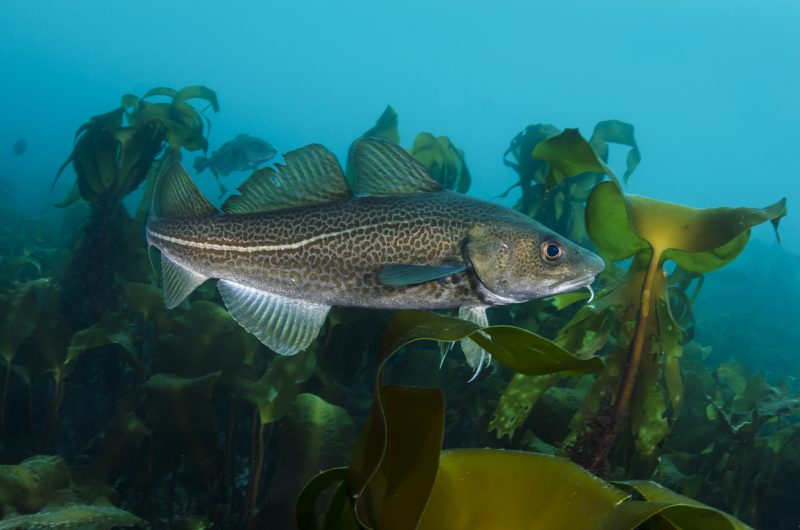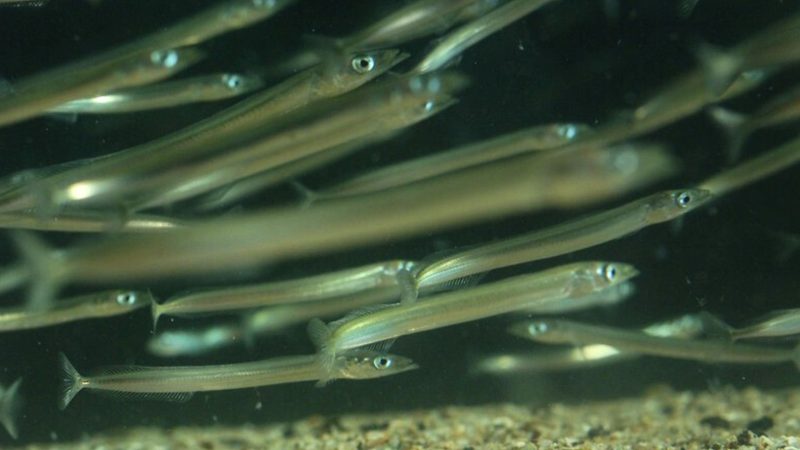A new fish species has been discovered in Mauritanian deep-water coral reefs.
It has been revealed that Squid have teeth in their suckers.
Heavy metal pollutants, found in brown crabs, have been traced back to mining waste in Norwegian fjords.More science shows why we shouldn’t be mining the deep sea, as in this case, it will lead to the loss of important sources of oxygen.
Fisheries
An investigation has revealed that global fisheries are in a far worse shape than we thought, with many having already collapsed.
Recent seismic activity has sparked concerns among Norwegian fishermen, who fear it may negatively impact the mackerel fishing season.
Danish fishermen are asking for a factual discussion after expressing concerns that a recent report on the environmental impacts of bottom trawling is full of errors and exaggerations.
Trust must be built with fishers if progress is to be made with ropeless fishing. On a similar note, collaboration has been proved key in aiding Africa’s struggling fisheries.
British Overseas Territories
The Cayman Islands Government has given approval to dredge a canal in a marine protected area and mangrove buffer, despite being warned against it by the Department of Environment.
Argentina isn’t happy, as British oil development moves forward in the Falkland Islands.
Hurricane Ernesto hit Bermuda on Friday as a category 2 storm. Royal marines and engineers were sent to help citizens in the British Virgin Islands pick up the pieces following the Hurricane.
A UK government official has lost an appeal to allow limited freedom of movement to a group of 47 asylum seekers on the island of Diego Garcia.
Two Australian pygmy blue whales have been tracked by researchers for the first time, and a new study has shown baleen whale adaptation. Crucial information has been discovered about the feeding behaviour of humpback whales.
Fishermen across the Gulf of Mexico are blaming sharks for eating their fish.
Rainfall may prove a better predictor of sea turtle hatchling size than ambient temperature.
Marine Protection
A law that would protect a massive stretch of Argentina’s seafloor is running out of time.
The Scottish Government has opened a consultation on Fisheries Management Measures within Scottish Offshore Marine Protected Areas (MPAs). Closes on 14th October.
Climate Crisis
A study has found that the Paris Agreement target of limiting global warming below 1.5°C above pre-industrial levels is no longer possible, as it hangs on governments, not technology. Meanwhile heat deaths in Europe are predicted to triple by the end of the century. Ocean temperatures in the Fijian archipelago are reported as their highest in 653 years. Another impact from increasing water temperatures is the melting of ice buffers, leading to more rubbish and disease, disrupting the Antarctic ecosystems. Sustained climate change is also going to have a negative effect on phytoplankton.
A huge gap of data has been discovered on how much human-generated carbon dioxide is present in coastal oceans, without this, we don’t know how much future emissions must be cut by. There is a window of opportunity for climate and biodiversity, and just cutting emissions will not prevent the climate breakdown.
Another sewage leak! The Environment Agency is considering legal action against South West Water after a sewage leak in Devon. Some have said that Labour’s water bill is still not enough to address the scale of the UK’s water pollution crisis.
North Sea gas company, Serica Energy, says it is considering pulling out of Britain and looking at establishing itself in Nordic countries such as Norway.
Over the next 50 years, people will push further into wildlife habitats across more than half the land on Earth, threatening biodiversity and increasing the chance of future pandemics.
New research has systematically demonstrated that a mild zap of electricity can strengthen a marine coastline, reducing the threat of erosion. But are these the solutions we should be looking at? Scientists are seeking to protect California’s coast from rising sea levels by converting flood-prone farmland into tidal wetlands, and a marine biologist thinks seaworms could help address the climate crisis.
Aquaculture
Another fish farm escape! There has been an escape of a large number of farmed salmon off the west coast of Ireland.
Scottish Sea Farms has doubled its revenue and turned loss into profit during the second quarter of this year, and the Norwegian government is looking to reduce the proportion of farmed fish feed produced outside the country.
Tesco has released a new welfare policy dedicated to the humane treatment of theirfarmed decapod crustaceans.
The world’s first commercial seaweed farm will open within a North Sea wind farm.
Plastics
Single-use plastic bottles sold in the EU now come with caps or lids attached. Some say this could have huge benefits to reducing marine pollution. The Scottish Government is following a similar trend by launching a public consultation on bringing in a charge for single-use cups.
A growing body of scientific evidence shows that microplastics are accumulating in critical human organs! More urgent action is needed on plastic pollution.
Misc
A BBC investigation revealed that dozens of workers from around the world may have been trafficked into the UK to work for a small family-owned Scottish fishing firm. Watch the documentary, Slavery at Sea, here.
The UK Marine Climate Change Impacts Partnership (MCCIP) is hosting an online workshop on climate smart marine spatial planning in the UKOTs (10th September 2024, 3pm). Register here.
Open Communications for The Ocean (OCTO) is hosting a webinar on exploring MPAs around the world with case studies using the MPA guide (11th September 2024, 5pm). Register here.
Photo credits: Ocean Image Bank, Emilie Ledwidge


















